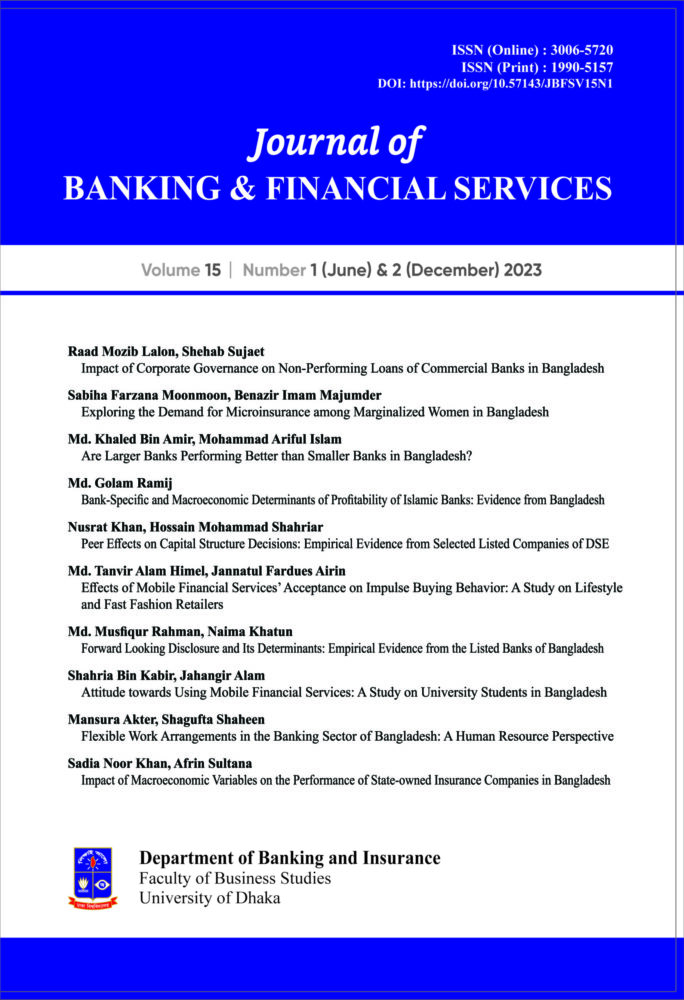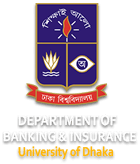Flexible Work Arrangements in the Banking Sector of Bangladesh: A Human Resource Perspective

Mansura Akter
Associate Professor, Department of International Business, University of Dhaka.
Email: mansura@du.ac.bd
Shagufta Shaheen
Assistant Professor, Department of Banking and Insurance, University of Dhaka
Email: shagufta@du.ac.bd
Journal of Banking & Financial Services
Volume 15 Number 1 (June) & 2 (December 2023)
DOI : https://doi.org/10.57143/JBFSV15A9
Published online: 30 May, 2024
Published in Print: 02 June, 2024
Whilethe developed nations are applying the flexible work arrangements (FWAs) as an alternative sustainable employee retention strategy, possibility of approaching FWAs in many developing nations, particularly in Bangladesh has remained unexplored. The study aims to investigate the Human Resource (HR) perspectives on whether FWAs are possible in banks in Bangladesh. To explore the state of current and possible potential practices of FWAs, the study conducted 9 (nine) in-depth interviews with HR managers of different categories of banks operating in Bangladesh. This study covered three patterns of bank ownership: private commercial, public commercial, and the bank regulator (central bank). The results of this study revealed that currently banks are informally using FWAs to a limited extent due to a lack of formal regulations and guidelines. The results also revealed that banks are thinking to practice FWAs-namely flex time, flex career, flex place, flex leave and job sharing in near future to match customer demand and to adapt to global banking standards. Additionally, the study disclosed thatthere is an urge to introduce standard regulations on FWAs in the banking sector. Theoretically, this study contributed by raising a new dimension of working arrangements in the banking sector ina developing country context and by underlining the importance of further research on FWAs because the implication of FWAs depends on socio-cultural context. For policy-making purpose, this study has identified the need to reform the existing regulations and to re-examine the organizational culture and human resource management practices of banks in Bangladesh to ensure a healthy work environment for work-life balance.
Keywords:
Flexible Work Arrangements (FWAs); Banking sector; Human Resource perspective;Bangladesh
